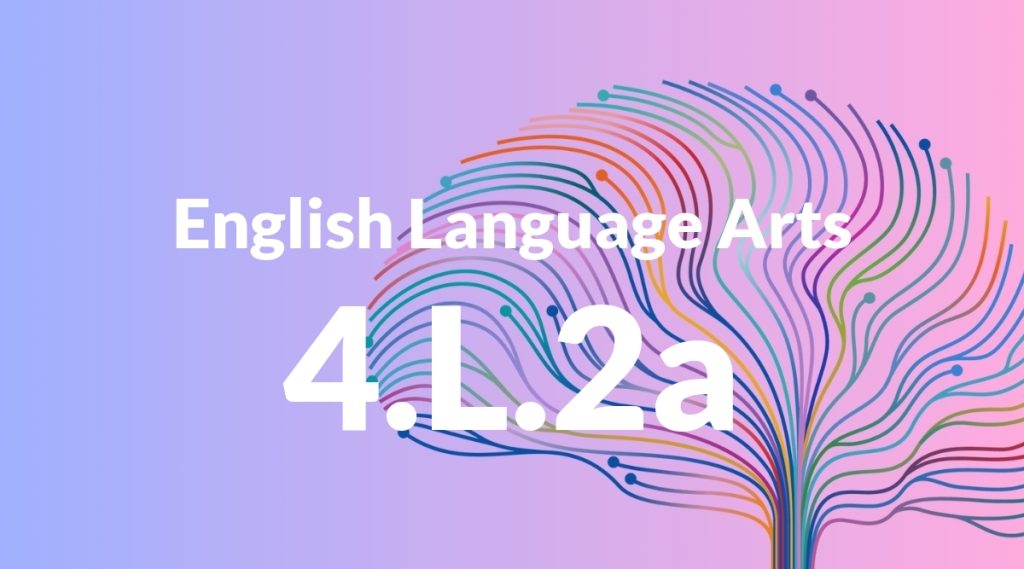Standard: 4.L.2a – Use correct capitalization.
Grade level: Grade 4
Subject: English Language Arts
Domain: Language
Teacher Overview
This standard focuses on the correct use of capitalization in writing. Mastery of this skill helps students produce clear and professional-looking written work, which is essential for effective communication. Understanding and applying capitalization rules is a foundational skill that supports more advanced writing and editing tasks in higher grades. Before tackling this standard, students should be comfortable identifying sentences and recognizing proper nouns. They should be able to distinguish between names and other types of words in a sentence.
After mastering this standard, students will be better prepared to learn more complex grammar and punctuation rules. They will be able to apply these skills to produce clearer and more polished writing in various contexts.
Common Misconception 1
A common misconception is that any important word in a sentence should be capitalized. This is incorrect because only proper nouns and the first word of a sentence need capitalization. Overcapitalization can make writing look cluttered and confusing.
Intervention 1
To address this, teachers can use practice exercises that focus on identifying and correcting overcapitalized words. Providing clear examples of proper and common nouns can help students make the distinction.
Common Misconception 2
Another common misconception is forgetting to capitalize the first word of a sentence or the pronoun ‘I’. This mistake often occurs because students may not see these as special cases requiring capitalization.
Intervention 2
Teachers can use visual aids like posters and flashcards, along with repeated practice in sentence correction activities, to reinforce the importance of capitalizing the first word in a sentence and the pronoun ‘I’.
Prerequisite Knowledge
Students should have a basic understanding of sentences and proper nouns, including the ability to recognize the beginning of a sentence and identify names of people, places, and things.
Subsequent Knowledge
Students will develop the ability to apply more advanced punctuation and grammar rules, leading to improved writing clarity and coherence in more complex compositions.
Instructional Activities
- Capitalization scavenger hunt in books or articles
- Sentence correction worksheets
- Group activities where students create posters with correctly capitalized sentences
- Writing letters to pen pals or family members with a focus on correct capitalization
- Interactive games that reinforce capitalization rules




